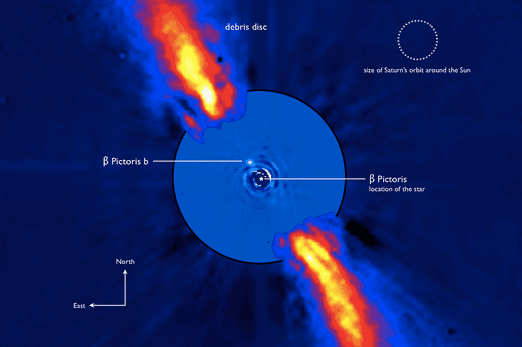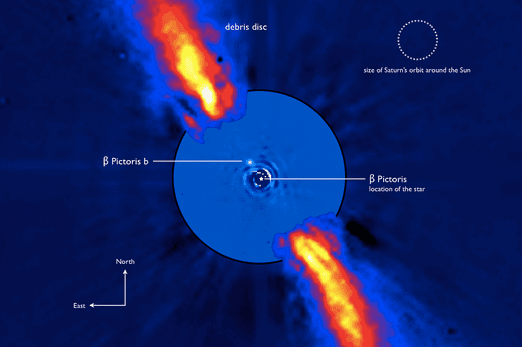Dutch Astronomers using ESO’s Very Large Telescope were able to measure the rotational speed of a planet outside the Solar System for the first time. Ignas Snellen and his colleagues at Leiden University in the Netherlands used infrared light and its absorption in the planet atmosphere to calculate the length of the day of β Pictoris b.
The object in question is a gaseous planet orbiting the star β Pictoris and it was the first exoplanet directly imaged (see photo). The planet has 7 times the mass of Jupiter and it is 63 light years away from us. It rotates at 90000 kilometres per hour at its equator, which is faster than any planet in the Solar System ( for comparison Earth rotational speed is only 1670 km/h). A day on β Pictoris b lasts just over eight hours.

This composite image represents the close environment of Beta Pictoris as seen in near infrared light. This very faint environment is revealed after a very careful subtraction of the much brighter stellar halo. The outer part of the image shows the reflected light on the dust disc, as observed in 1996 with the ADONIS instrument on ESO’s 3.6 m telescope. [ESO/A.-M. Lagrange et al.]
Reference
Snellen, I. A. G.

